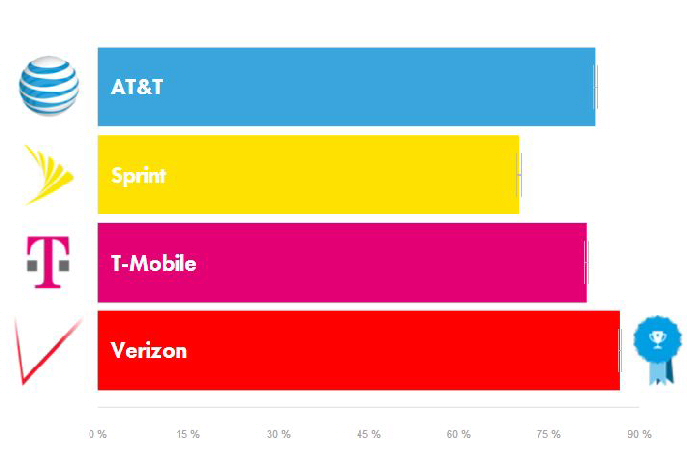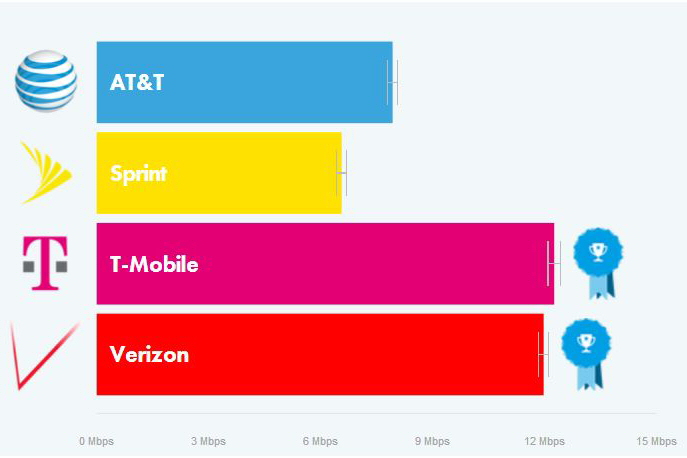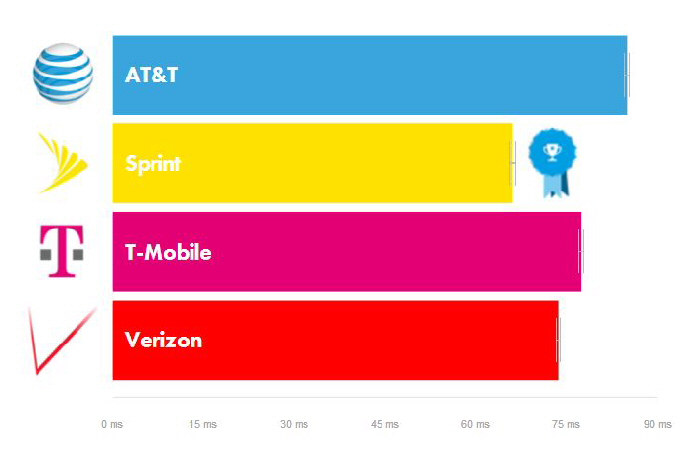
When it comes to choosing a good network, you want one with a decent amount of 4G coverage. T-Mobile’s 4G network always trailed AT&T and Verizon, but things have changed dramatically. T-Mobile’s 4G coverage increased to 81.2 percent in the fourth quarter. This means that users on T-Mobile’s network have a 4G signal 81.2 percent of the time.

These result put T-Mobile in a virtual tie with AT&T (82.6 percent) and in striking distance of Verizon (86.7 percent). Sprint was a distant fourth at 70 percent.
This increase can be attributed to T-Mobile’s roll out of LTE on the 700MHz spectrum. This low-frequency spectrum was instrumental in boosting coverage outside of cities, as well as the interiors of buildings.
OpenSignal gets its data through its crowdsourcing app, which is available on both Android and iOS. This app helps users find out which networks perform the best in their area, the true download speeds, and where local Wi-Fi hotspots are. The results of this latest report were compiled from over 180,000 people using the app between October 1 through December 31, 2015.
T-Mobile also performed well in the speed department. Its overall LTE download speed of 12.3Mbps was just enough to edge out Verizon’s 12.0Mbps download speed for the top spot. AT&T and Sprint were a distant third and fourth with download speeds of 8 and 6.6Mbps respectively.
OpenSignal analyzed LTE speeds of the eleven biggest metro areas and Verizon and T-Mobile were at the top of each one. T-Mobile won in four cities (Boston, Dallas, New York, and Philadelphia) while Verizon took three (Chicago, Los Angeles, and Miami). Three cities (Atlanta, San Francisco, and Washington) showed a virtual tie between Verizon and T-Mobile, with the remaining city (Houston) showed a virtual tie among all four major networks.
Latency is another area in which OpenSignal points out as very important. It measures the time it takes for data to make a round trip through the network. The lower the latency the faster web pages load. It also happens to be critical for voice over LTE (VoLTE). The lower the latency, the better the call quality is. Interestingly enough, the carrier with the lowest LTE latency was Sprint (66ms), but it doesn’t have VoLTE services. Verizon (73.6ms) was second, followed by T-Mobile (77.4ms) and AT&T (85ms).
OpenSignal still declares Verizon as the king when it comes to reliability and overall coverage, but it’s clear that T-Mobile is ready to play with the big boys. It will be interesting to see how Un-carrier makes out when OpenSignal releases its next report.




